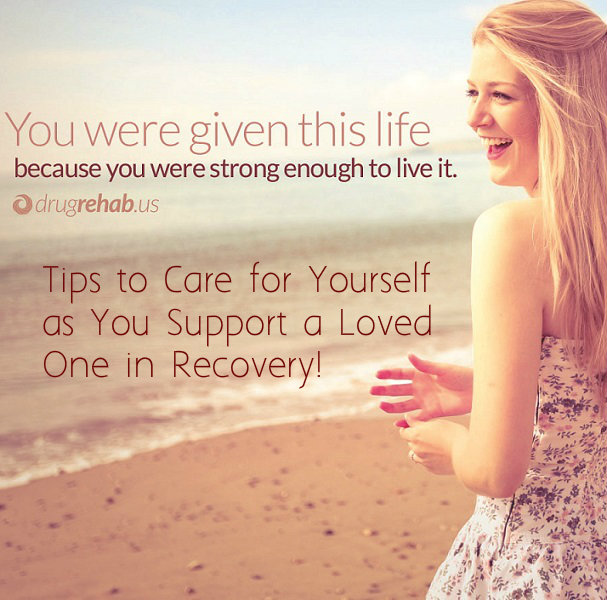15 Jun 2015
Summer Drinking Dangers
Summer is a time when many of us want to celebrate. Winter is over with. With more daylight hours of bright sun, the beach beckons. There are graduation parties, Fourth of July barbecues, and any-reason-at-all parties to attend. It’s a great time to get together with friends, enjoy the long days and have a good time. Unfortunately, a lot of these celebrations involve alcohol and all the dangers associated with it. Stay safe this summer and consider partying alcohol-free. If you are going to indulge, do so responsibly and safely.
Drinking Dangers During The Summer
Alcohol And The Heat
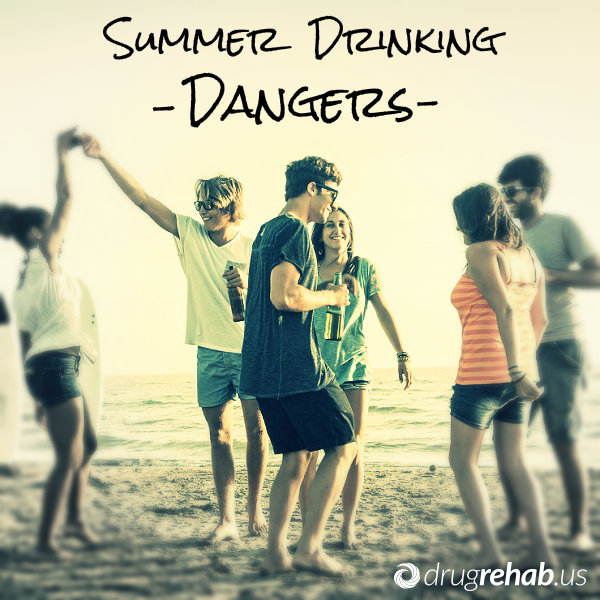 Many of the best summer parties are outdoor barbecues and picnics. It’s natural to want to drink at these events. You’re warm and relaxed and enjoying the company of your friends or family. Being outside while temperatures are high and the sun is shining can be a health hazard even without alcohol.Without proper precautions you may suffer from heat stroke, sunburn or dehydration. Alcohol can worsen these conditions and speed their onset.
Many of the best summer parties are outdoor barbecues and picnics. It’s natural to want to drink at these events. You’re warm and relaxed and enjoying the company of your friends or family. Being outside while temperatures are high and the sun is shining can be a health hazard even without alcohol.Without proper precautions you may suffer from heat stroke, sunburn or dehydration. Alcohol can worsen these conditions and speed their onset.
If you are planning to drink outside, do so in moderation and don’t forget to drink plenty of water as well. Use sunscreen and spend time in the shade to avoid too much sun exposure, avoid caffeinated drinks and stay cool with ice water.
Alcohol And The Water
What would a summer party be without a pool, lake or ocean-side beach? If you’re drinking near or on the water, the risk of harm is great. In fact, one out of every two deaths that occurs during water recreation is related to alcohol. While many people take drinking and driving very seriously, not everyone considers drinking and boating to be an issue. An intoxicated boat operator can cause terrible damage from accidents. Passengers drinking on boats may lose balance and fall overboard.
There are also the same hazards that involve drinking and being exposed to heat and the sun. On a boat it may not be possible to get drinkable water to stay hydrated, or to find relief from heat and sun. If you’ll be out on a boat, it’s best to refrain from drinking at all. If there will be drinking, bring along plenty of water, sunscreen and light clothing. Never let the operator of a boat drink.
Parties And Binge Drinking
Most people have lots of parties to attend over the summer, which gives ample opportunities to drink too much. When you’re having fun at a party it can be easy to forget how much you have had. Women should not have more than four drinks at once, or men more than five. Drinking more is considered binge drinking and is particularly dangerous. Binging can lead to car accidents, assaults and fights, unplanned pregnancies, increased blood pressure, heart disease and other serious problems.
Binge drinking can turn a fun party into a nightmare. Always keep track of what you are drinking at parties and set a limit. Drink one non-alcoholic beverage in between every alcoholic drink to keep yourself from getting out of control. It also helps to have a friend or partner monitor your intake and warn you if you are close to drinking too much.
Summer is a season full of sun and fun, and plenty of parties. Make the most of your summer vacation without an alcohol-related tragedy. Be careful, be aware of how much you and others drink and stay hydrated so that you can expect to enjoy your summer safely.
Read Our Other Posts With Helpful Tips & Tricks
04 Jun 2015
What Are Soft Addictions?
The term soft addiction is fairly new, and it can be misleading or even offensive to people with true addictions. A soft addiction is not really an addiction at all. It’s more like a bad habit, but like a true addiction, these bad habits can keep you from living a satisfying, happy and meaningful life. Consider the times during the day in which you zone out and try to de-stress. Maybe it’s when you lose an hour on Facebook or you sit down to watch a half-hour TV show and don’t get up for two hours. These moments are made up of soft addictions and they are preventing you from living your best life.
Soft Addiction vs. Real Addiction
A soft addiction can best be compared to a behavioral addiction. A true behavioral addiction occurs when you compulsively engage in some kind of activity. Let’s use shopping as an example. If you have a real addiction to shopping, you spend most of your time thinking about it. You spend hours each day shopping online. Your finances are in the tank because you get out of control when you shop. You try to ease off, but you can’t
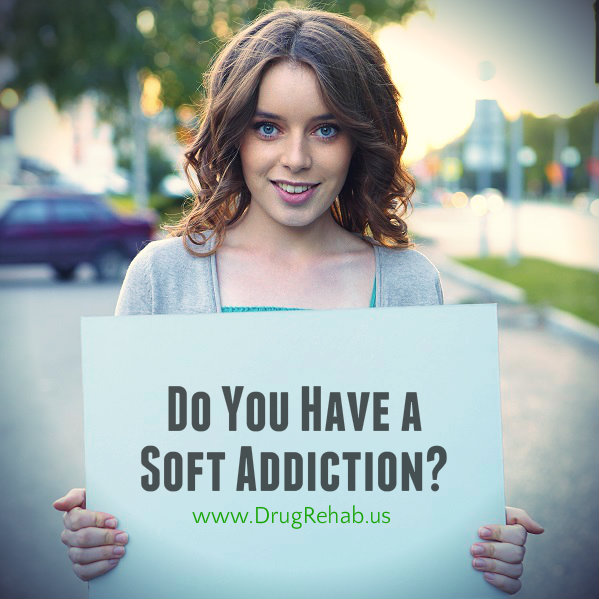 If your shopping habit is more of a soft addiction, on the other hand, you aren’t out of control. It’s probably something you do to relax or escape from the day’s stresses. You might spend a half hour online browsing a couple days a week, or you spend Saturday afternoons at the mall buying a couple of new outfits. You spend more than you should, but you aren’t going into debt and you don’t feel out of control.
If your shopping habit is more of a soft addiction, on the other hand, you aren’t out of control. It’s probably something you do to relax or escape from the day’s stresses. You might spend a half hour online browsing a couple days a week, or you spend Saturday afternoons at the mall buying a couple of new outfits. You spend more than you should, but you aren’t going into debt and you don’t feel out of control.
Recognizing Your Soft Addictions
Soft addictions are insidious and hard to recognize. Think of the times during the day when you engage in an activity mindlessly. It could be spending time online, watching TV, reading celebrity magazines or even gossiping with coworkers. These habits aren’t always bad. Some amount of mindless activity is helpful for coping with stress. But when you lose too much time to them, you need to make a change. Pick out what you think might be your soft addictions and then record how much time you spend on them, how they make you feel, and what you could have been doing instead that would have been more rewarding.
Changing Your Behaviors
When you start to recognize your soft addictions, you will begin to realize you are wasting time on meaningless things. You’re on Facebook when you should be productive at work. You’re watching mindless reality TV when you should be connecting with your partner. Changing these habits won’t be easy, but it will be rewarding. Start by setting time limits. When you sit down to watch those reruns you’ve seen a million times already, give yourself half an hour to relax and then turn the TV off.
At the end of your time limit, find something better to do, and make sure it isn’t another mindless bad habit. Call a friend you haven’t spoken to in a while. Have dinner with your partner and have a meaningful conversation. Get started on that home project you’ve been putting off. Do something creative, like painting or writing. Read a piece of classic literature. The key is to do something meaningful.
When you start noticing your soft addictions and begin replacing them with more meaningful activities, you will realize just how rewarding it is to make these changes. Soft addictions try to fill holes in our lives, but they fail, and they can turn into true addictions. Be aware and start making changes now for a better life.
Read More About Behavioral Addictions
30 Apr 2015
Will You Be Successful In Drug Rehab?
Admitting that you have a problem with drug use and that you need treatment for it are big steps to take. You should be commended for coming to this realization and for getting out of the shadow of denial. The next logical step is to go through some kind of rehab or treatment for drug addiction. It’s normal if you are feeling worried about it or if you are concerned that you’ll fail. Drug rehab statistics are unclear on how many people are successful on their first try, but the only way you’ll know is if you go through with it.
What Happens In Drug Rehab?
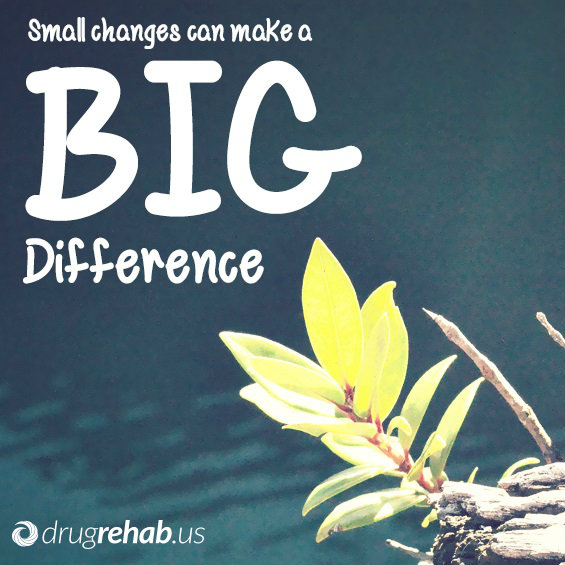 To give yourself the best chance of success at rehab you need to have a positive attitude and the commitment to do the work needed to get better. It also helps to know what to expect. Every rehab facility is different and has its own policies and treatment methods. To really know what to expect, talk to someone in admissions and ask all the questions you have about what will happen once you get there.
To give yourself the best chance of success at rehab you need to have a positive attitude and the commitment to do the work needed to get better. It also helps to know what to expect. Every rehab facility is different and has its own policies and treatment methods. To really know what to expect, talk to someone in admissions and ask all the questions you have about what will happen once you get there.
In general, you can expect to have to go through detox, although some facilities will require that you do that before entering. You should also have one-on-one counseling sessions, group support and any number of other activities that promote a healthy, drug-free life after rehab. You should also have a treatment plan that is tailored for your particular needs.
How To Do Well In Rehab
Drug rehabilitation statistics show us that no matter how good rehab is, many addicts will relapse afterward. This doesn’t necessarily mean failure. What it means is that addiction is a chronic disease that requires ongoing treatment. Nevertheless, you can make the most of your rehab experience to give yourself the best chance of avoiding a later relapse.
Make a commitment to the process and devote yourself to the work that the professionals ask you to do. When you aren’t sure about a part of the process, ask questions. Open up fully to your therapists and counselors, and also to your fellow patients. Being open will help you heal and help you make new friends. Rely on the support of your family and friends, even if they can’t be in rehab with you. You will need them when you complete your program.
What About Outpatient Treatment?
Rehab is not the only option for drug addiction treatment. If your life circumstances don’t allow you to spend weeks or months in a rehab facility, you can get treatment that works with your schedule and that allows you to stay home. Statistics for outpatient drug rehab success rates are minimal, but it does work for many people. One benefit is that you can stay with a friend or with family members who care about you and support you.
Whatever kind of treatment you choose for your addiction, the important thing is that you get care. No one can battle addiction alone, and the only way to be successful at being sober is to get the help you need and to ask for support when you need it.
Believe In Yourself. Remember…Small Changes Can Make A Big Difference!
You may be addicted to your smartphone, and if you are, your health is suffering. No, your phone is not a drug, but if you get anxious and panicky when you misplace it for two minutes or you check for new texts or Facebook updates every five seconds, you’re acting like an addict.
Sure, smartphones have made our lives easier and more convenient. They have even eliminated boredom from our daily existence, but at what cost?
Read on and you may decide to scale back your attachment to your favorite device.
Your Pocket Is Vibrating, Or Is It?
 Phantom vibrations — when you think your phone just notified you of a message so you look at it and find nothing — are common among obsessed smartphone users. This phenomenon seems funny, but it’s a psychological disruption.
Phantom vibrations — when you think your phone just notified you of a message so you look at it and find nothing — are common among obsessed smartphone users. This phenomenon seems funny, but it’s a psychological disruption.
The next time you experience a phantom vibration, check your emotions. Did it make you feel anxious? Were you excited when you thought you had a new message or update, and were you disappointed to find you didn’t?
Did you then check your phone compulsively, sure that a notification was about to present itself? Anything that makes you feel this way is not healthy.
Your Smartphone Is Disrupting Your Sleep
Do you keep your phone on your bedside table? Do you scroll through it just before closing your eyes to sleep at night? Do you pick it up as soon as you wake up in the morning? While for safety and emergency purposes it seems justifiable to keep your phone next to your bed, your habits in using it are probably causing you to lose sleep. Studies have found that the type of light produced by your smartphone disrupts the production of hormones you need for good sleep. This means that it’s more difficult to fall asleep after screen time.
Another way your nighttime phone habit is interfering with your sleep is more psychological. You aren’t fully disconnecting from work and other preoccupations before you try to sleep at night. If you can’t detach, you will have trouble falling asleep, and your sleep may be disrupted because you are still thinking about work and other responsibilities. Stay away from the screen and turn off notifications two hours before bedtime to drastically improve your sleep and your energy levels during the day.
Your Smartphone Is Damaging Your Eyes
This is a scary one because it could have a lasting impact on so many people. The time you spend watching your phone’s screen is increasing your risk of eye damage. The bluish light from your smartphone that disrupts your sleep is also bad for your eyes. Exposure to it puts you at risk for macular degeneration, which is the most common cause of blindness. It is extended and frequent exposure to this light that causes damage, so if you cut back your time with the phone, you can cut out the risk.
Do You Have Nomophobia?
This modern problem is the fear of losing your phone: no-mobile-phone-phobia. According to a survey conducted by a British tech company, nomophobia is on the rise. Out of 1,000 people surveyed, two-thirds were seriously afraid of losing their phones. Nearly half keep two phones because of this fear, and young people are the most nomophobic. If you feel anxious and break into a cold sweat just thinking about misplacing your phone, you probably have nomophobia.
Tips For Those Struggling With Smartphone Obsession
Smartphone addiction is a serious problem for more and more people. To make sure that you aren’t suffering because of your phone use, cut back on your screen time. Stop using your phone before bed and refrain from touching it in the morning, at least until you are up and making coffee. Take breaks from it throughout the day and even consider taking one whole day each week away from your phone. It will be hard at first, but you won’t regret cutting back.
Learn More About Other Behavioral Addictions
02 Mar 2015
How To Use Distraction To Avoid Relapse
Relapse is an inevitable part of addiction recovery for many people, but the goal is to avoid it. If you, or your loved one in recovery, can avoid using again you can avoid resetting the clock on sobriety. Not using again when you feel intense cravings or when a trigger makes you reach for a glass or a pill is difficult. It’s beyond difficult. It sometimes feels impossible.
Willpower is required, but as an addict you need what seems like an inexhaustible well of it. You need far more than most people need in everyday life. Learn from the experts on willpower.
The good news is that you can exercise it like a muscle, and part of that involves distracting yourself.
Learning About Self-Control From The Marshmallow Test
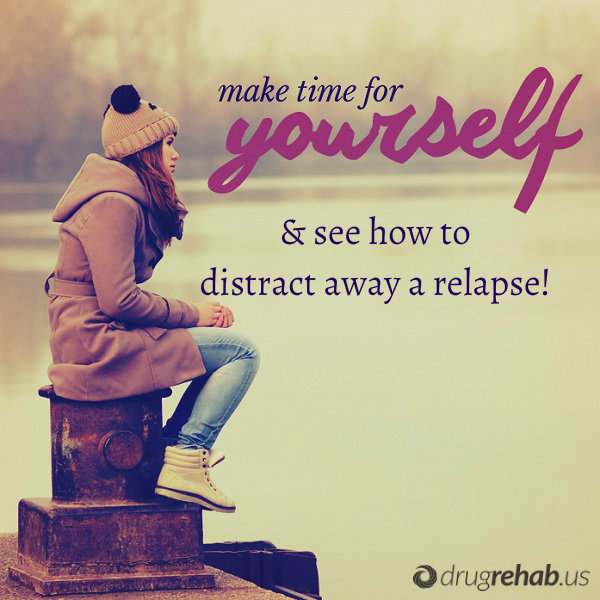 A famous study involving willpower and self-control has shown us just how important the ability to delay gratification is. The study used children to test willpower and then tracked them later in life. The kids were given a marshmallow and told they could eat it right away or wait 15 minutes and get a second marshmallow. Each child was then left alone with the marshmallow for the 15 minutes. Those that could resist the urge to eat the marshmallow and wait to get two were much more likely to be successful later in life. They did better in school and even earned more money later.
A famous study involving willpower and self-control has shown us just how important the ability to delay gratification is. The study used children to test willpower and then tracked them later in life. The kids were given a marshmallow and told they could eat it right away or wait 15 minutes and get a second marshmallow. Each child was then left alone with the marshmallow for the 15 minutes. Those that could resist the urge to eat the marshmallow and wait to get two were much more likely to be successful later in life. They did better in school and even earned more money later.
What addicts in recovery can learn from the marshmallow test is how to have self-control in the face of the intense urge to use again. Researchers observed kids using a variety of techniques to avoid giving in to instant gratification. What came up again and again, and what other researchers have found helps to strengthen willpower, is distraction. In the face of a craving, distract yourself.
Tips On How To Distract Away A Relapse
Of course, there is a huge difference between a child drawn to a marshmallow and a recovering addict facing a bottle of vodka, but you can still use the same technique of distraction. Distraction is used in a variety of settings to improve willpower, most notably among people trying to lose weight. Their techniques and rules can help you avoid relapsing. Remember that practice and repetition are important. The more you make these distractions into habits, the easier it will be to resist your cravings.
- Choose healthy distractions – For a distraction to be successful it has to be pleasurable, but you also don’t want to develop a bad habit. Don’t use junk food or cigarettes. Whatever it is you enjoy, use it when you feel a craving. It could be a walk in the park, a musical instrument, a cup of coffee, a good book or a movie with a friend. Whatever works for you should be your distraction.
- Use your imagination – If you find yourself in a situation where you can’t get to your distraction, imagine it. Research has found that imagining a pleasurable distraction can be almost as good as having the distraction in hand. Get creative and think of anything pleasurable besides your urge to use.
- Solve a problem – Researchers have also found that engagement is as important as pleasure if a distraction is to be successful. If you have a problem to solve at work, or even just a crossword puzzle, use it as an engaging distraction.
- Plan your distractions – Don’t wait for a craving to hit, when you will be desperate for a distraction. Plan right now. What will your distractions be when you most need them? Have a variety ready to go.
As you make a habit of distracting yourself from cravings, it will become easier and easier to avoid giving in to urges. Choose healthy distractions, use them often and make a habit of not relapsing!
12 Feb 2015
How To Get Better Sleep In Early Recovery
Healthy life habits may seem like the least of your concerns when you’re in the early stages of recovery from addiction. You’re probably experiencing intense urges to use again and are focused on not relapsing. But your will can be strengthened if you take care of the basic needs that keep you healthy.
Sleep is one of those basic needs, and it often suffers in early recovery. If you can ensure that you sleep well and for long enough, you’ll feel better and be better able to resist your cravings.
Insomnia And Recovery
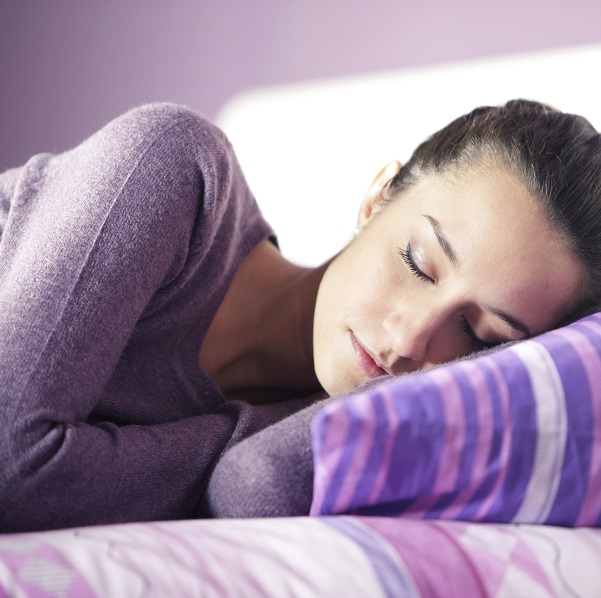 If you’re having trouble sleeping now that you’re in recovery, you’re not alone. Insomnia is a common complaint of people newly recovering from addiction. It’s also a risk factor for relapse, so it’s important that you take steps to correct your sleeping woes.
If you’re having trouble sleeping now that you’re in recovery, you’re not alone. Insomnia is a common complaint of people newly recovering from addiction. It’s also a risk factor for relapse, so it’s important that you take steps to correct your sleeping woes.
Researchers have found that the incidence of sleep difficulties is up to five times higher in people recovering from addiction than in the general population. Furthermore, this insomnia can last for months or even years.
Therapy For Insomnia
Treating your insomnia is important if you want to feel better and be most able to resist a relapse. Using medications, even over-the-counter sleep aids, is risky for a person recovering from addiction. Therapy, on the other hand, is a good place to start working on better sleep. Evidence shows that cognitive behavioral therapy (CBT) can help recovering addicts with insomnia.
CBT is a therapeutic approach that focuses on changing behaviors. A therapist will work with you to teach you how to be aware of your behaviors, how they impact your sleep and how to change them. CBT for insomnia may include keeping a sleep diary, learning good sleep practices, limiting time in bed to actual sleep, controlling stimulation before bed time and managing negative thoughts about sleeping.
Tips On How To Get Better Sleep In Early Recovery
If you aren’t in a position to work with a therapist for your insomnia, there are still some things you can do to try to get to sleep. Good practices for sleeping aren’t always obvious, so you can learn how to be a better sleeper with these tips:
- Start by targeting your bedroom – Make sure your bed is comfortable and that your room is quiet and dark at night. Use ear plugs and heavy curtains if needed and keep the temperature cool.
- Timing is also important for good sleep – You should have a set schedule for when you go to bed and when you get up in the morning. Stick with it every day of the week. This will help train your body and mind to know when it’s time to sleep. The regular pattern of sleeping and waking is an important rhythm. Don’t interrupt it for anything, even on the weekends.
- Prepare yourself for bed at night with a relaxing routine – Avoid caffeine for at least eight hours before your bed time. Don’t drink anything for two hours before bed time to avoid waking in the night. Avoid anything stressful or stimulating before bed time. This includes exciting television programs and exercise. Instead, do something relaxing. Go for a short walk, have a cup of herbal tea, or read a book. Don’t use electronic devices before bed. The artificial light is disruptive to your sleep.
If you can learn to be a good sleeper, you can strengthen your sobriety. Resisting cravings is always easier when you feel good, and you can’t feel good without good sleep. Try changing your sleep practices and if that doesn’t work, consider getting help from a professional. It could be the best thing you do for your recovery.
How To Avoid Getting Hooked On Sleeping Pills – Make Sure You Don’t Take It To The Next Step Of Sleeping Pills And Addiction
29 Jan 2015
Healing From Depression In Recovery
Depression and addiction as co-existing disorders isn’t uncommon. If you’ve gone through rehab and addiction treatment and are now successfully in recovery, you’ve done some very difficult work to get better.
What if you now feel depressed? If you do, you’re far from alone. Nearly 9 million people struggle with both addiction and a mental illness. Any mental illness can co-occur with addiction, but depression is common.
Learning To Heal From Depression In Recovery
If you did your hard work in rehab and are now struggling with depression, you’re at greater risk of relapsing. Learn to heal from your depression so you don’t return to substance abuse and so you can live an enjoyable life.
Getting Diagnosis And Treatment
 The most important thing you can do now is to see a professional for a diagnosis. A mental health professional can tell you if you have clinical depression or if you are battling a normal and expected bout of depression after drug or alcohol addiction. Either way, getting treatment will help. Treatment for depression usually involves psychotherapy, cognitive behavioral therapy, group therapy, medication or some combination of these methods.
The most important thing you can do now is to see a professional for a diagnosis. A mental health professional can tell you if you have clinical depression or if you are battling a normal and expected bout of depression after drug or alcohol addiction. Either way, getting treatment will help. Treatment for depression usually involves psychotherapy, cognitive behavioral therapy, group therapy, medication or some combination of these methods.
Therapy can help you learn to recognize signs of depression and negative thoughts while also learning how to change them. Medication is a type of treatment that works for many people struggling with depression. However, as an addict in recovery you may not be comfortable taking a medication. That is a personal choice and one you should make with the advice of your doctor and therapist.
Positive Lifestyle Changes
While professional help is important in guiding you through post-rehab depression, you can also make positive changes that will improve your mood. None of these should be considered a substitution for professional care, but they can be used to supplement your treatment:
- Exercise – One important thing to do is to start exercising and eating well. Being in good physical condition will go a long way toward improving your mood. Furthermore, exercise is known to lift the mood immediately. If you feel like you can barely get out of bed in the mornings, the idea of exercise may be daunting. Start small with a short walk each day and see how it makes you feel.
- Be social – Another important way to battle depression is to be social. Spend quality time with people you enjoy. You don’t have to have a lot of friends or go to parties to be social and to benefit from socializing. Having a cup of coffee with a good friend or dinner with your family are great ways to feel better about your life. Social support is crucial to both sobriety and mood.
- Make life meaningful – Develop meaningful activities in your life. For people in recovery, sobriety often feels like a big gaping hole. You spent so much time and energy using, you may now feel lost. Fill up that hole with activities that are healthful and meaningful. Work at a job you enjoy. Do volunteer work. Take up a creative hobby like painting or writing. Adopt a dog or cat from a shelter and learn to take care of it. All of these things are meaningful and special and will make your life feel worthwhile.
Caring And Effective Depression Treatment Is Available
Depression is a serious mental illness, and it can take over your life if you do not challenge it. As an addict in recovery, you face additional challenges. If you just can’t shake your feelings of depression no matter what lifestyle changes you make, be sure to seek professional help. Depression is treatable and you don’t have to suffer.
Call Us Now For Mental Health Or Addiction Help – We Are Here For You Because You’re Worth It!…Always!
When you have a loved one battling addiction, especially if it is someone close to you, it is all too easy to get wrapped up in his problems and his needs. As you support him, stand by him and care for him, don’t forget to take care of yourself. Caretakers often lose sight of who they are and become stressed, overwhelmed and sometimes even physically ill from the strain of caring for someone else. Take time for your own needs while still supporting your loved one and you will stay healthy and sane and better able to care for him.
Tips For Caring For Yourself As You Support A Loved One In Recovery
Lending Support In Recovery – Make A Plan
What does healthy support look like? If you have never stood by someone through such a difficult period of healing and transition, and if you have never watched while someone else played the role of caregiver and supporter, you may not know what is appropriate. What works for you and for your loved one is up to the two of you to decide. You need to decide if you should be living with this person, how much time you will spend with him and what form your support will take.
If, for example, you are caring for a child in recovery, you might want to stay with him until he is well enough to be independent. On the other hand, if you are supporting a friend, living together may not be an option. Instead, you may visit her every day, drive her to support group meetings or be on call as needed. Devoting all of your free time to supporting someone you care about is not necessarily feasible or appropriate. Set limitations and decide how much you are able to give.
Prepare A Support System For You
There are support groups for loved ones of addicts for a reason. Helping someone who is battling addiction, even if that person is getting professional help at the same time, isn’t easy. Knowing how tough this may be, get your own support system together. Let some of your friends or family members know what is going on in your life and that you may need to talk over a cup of coffee. Also consider picking up meeting schedules for support groups. Talking with people who have been where you are can be powerful.
Get Others To Assist
It may be that your loved one has few other people to whom he can turn for support. He may be relying solely on you. Ideally, though, you can call on others to fill in when you can’t be there. Ask trustworthy people who also care about him to spend at least a little time with him. Even just an hour here and there can be a great relief to you.
Take Time Off And Take Care Of Yourself
You can’t be there for your loved one 24 hours a day, seven days a week. It’s not practical and it isn’t good for you. When you feel overwhelmed, take a break. Whether this means taking a walk outside for an hour, spending a day pampering yourself or taking a quick weekend trip to relax and de-stress, do it. Get plenty of sleep each night, eat well, make time for exercise and fun and take time away from your duties. No one can be there for a recovering addict all of the time. If you take care of yourself, you will be better able to help the one you love overcome his struggle.
Discover Why You Should Join A Support Group As The Loved One Of An Addict – You Need Help And Healing Too!


